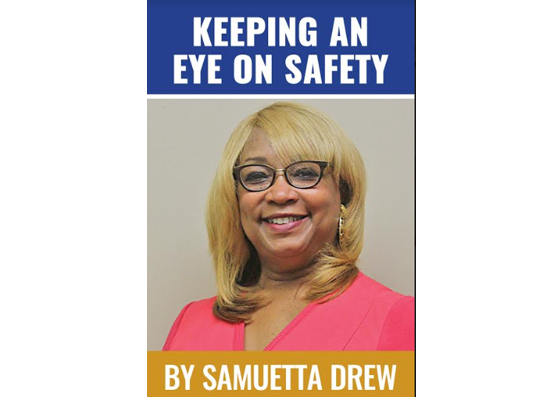By Samuetta Hill Drew
As of this date, a majority of the United States governors have implemented a “shelter in place” order. The “shelter in place” order has been determined to be one of the key preventive measures to help flatten the curve – meaning a decrease in the spread of pandemic coronavirus COVID – 19. Other preventive directives across the country have included the closure of all non-essential businesses and most recently the recommendation that everyone should wear a mask when outside their home in public spaces. All these safety precautions are to reduce and eventually stop the spread of COVID – 19.
Previous articles outlined the various types of safety precautions recommended by the Centers for Disease Control and Prevention (CDC) for U.S. citizens to practice. This article continues the topic of precautionary measures by listing recommended supplies to purchase ahead of time, as well as some actions to take for self-isolation at home if you were to develop mild symptoms of the Coronavirus COVID – 19. The CDC says the symptoms include cough, fever, tiredness, difficulty breathing (severe cases).
Dr. Amesh A. Adalja M.D. at Johns Hopkins Center for Health Security states that self-isolation is for people who have shown symptoms of the disease and are voluntarily limiting their contact with others for a specified duration of time to prevent transmission of the infection; where self-quarantine refers to those who are “reasonably believed” to have been exposed to COVID – 19 and are instructed to self-quarantine to prevent it spreading, per the CDC. They are asked to stay home until it is confirmed they are not sick.
As you prepare to “shelter in place” you need to begin thinking “what if I were to contract the COVID -19 disease and had to self-isolate at home”; what supplies would I need ahead of time? Below are some recommended precautionary “what if” items to purchase:
• Kleenex tissue.
• Mucus thinning medication.
• Cough medicine (a cup of hot water with honey and lemon can work also).
• Vicks VapoRub for your chest.
• Humidifier to have in your room at night while sleeping or you can turn the shower on hot and sit in the bathroom breathing in the steam.
• If you are asthmatic make sure your prescription inhaler and any other medications have not expired, if applicable. Replace any that have.
• Ask your doctor to contact your pharmacy and convert your 30 days prescription medications, where applicable, to 90 days. This request is dependent upon both your doctor’s and insurance company’s approval.
• Make sure you have enough food to last for a minimum of two weeks. It’s a good time to cook a large batch of soup, etc. Purchase can or packaged foods with a longer shelf life.
• Purchase clear liquids like water. You want to stay hydrated. Tap water is fine also.
• A thermometer to check your temperature, if needed.
• If you have preexisting conditions, contact your doctor to ask what he/she recommends for you to have on hand and/or any special instructions.
Most importantly to Keeping an Eye on Safety is to make sure you tell someone if you believe you have the COVID – 19 symptoms. Tell a family member, friend and/or doctor. If your symptoms worsen while self-isolating seek professional medical assistance immediately.




